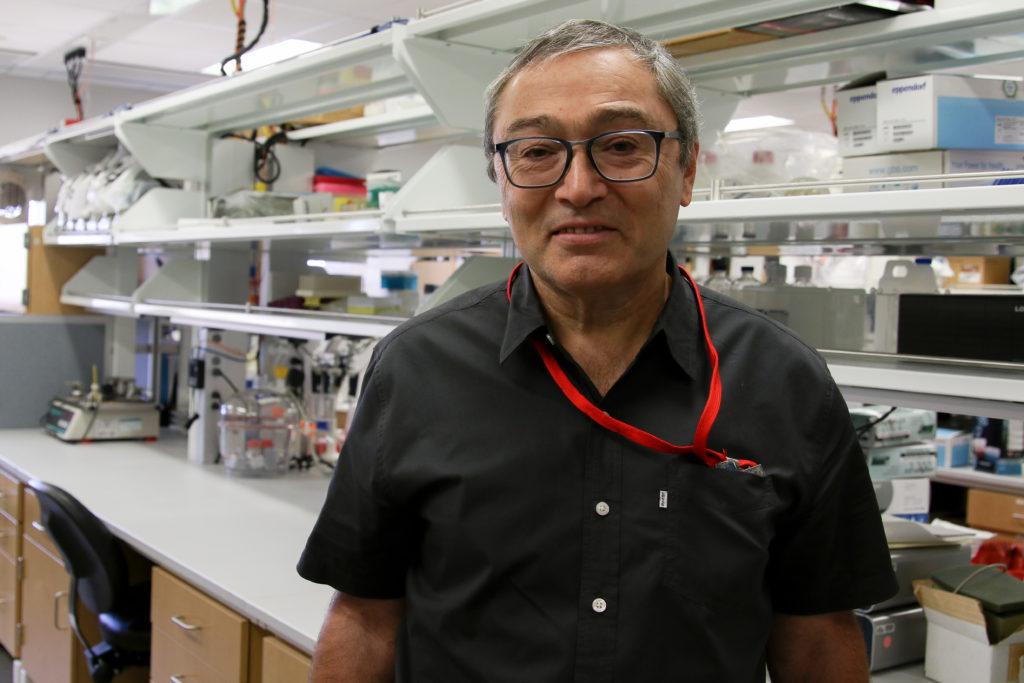Summer departures in one of the University’s medical departments left the office understaffed and took a major research grant away from current projects, faculty said.
The head of the microbiology, immunology and tropical medicine department left July 1, taking thousands of dollars in research grants away from the department as he brings his research to Cornell University, Michael Bukrinsky, the interim chair of the department, said. At least five departmental departures – including that of the former director, a faculty member and a handful of researchers – have left the current research team short-handed and without prestigious research grants, limiting the growth of future projects, Bukrinsky said.
Bukrinsky said the department’s former chair, Douglas Nixon, left his position at GW at about the same time that Brad Jones, a former assistant professor of medicine, departed. Both went to work at Cornell, he said.
Several researchers who worked in the department’s labs also left when Nixon resigned, he said.
Bukrinksy said that while turnover in the office means fewer researchers and less grant funding, it is also a chance to revisit the department’s focus and encourage more collaboration among the department’s researchers. Including Bukrinsky, the department boasts 16 faculty members, according to its website.
“We’re now in the transitional phase, looking at how to basically maintain the department, but this also presents an opportunity to move forward and improve the department,” he said.
Bukrinsky said that when the former department chair left, he took several substantial grants with him. The most significant was the multimillion-dollar BELIEVE grant, which is dedicated to providing funding for researching a cure for HIV. Bukrinsky said this type of grant stays with whoever applied for it.
Bukrinsky said the former chair also had several grants for about $300,000 a year that will be transferred to Cornell, and the loss of money will force the department to hire another HIV investigator and seek new federal funding sources to provide equipment and materials to researchers.
He said some of the money will remain at the University because a few of Nixon’s collaborators have stayed. But he said the department will now need to hire several new investigators to bring in more grants to conduct research in the next few months.
“It’s not that all the money is gone because certain subcontracts will be left at GW for those people who are involved in this project who stay at GW,” Bukrinsky said.
Bukrinsky said the dean of the School of Medicine and Health Sciences is responsible for hiring a new chair for the department but he does not know if the hiring process has started.
He added that Nixon was the co-director of and one of the leading investigators for the Center for AIDS Research – a multi-institutional center in D.C. funded by the National Institutes of Health. He said Nixon’s departure could mean fewer connections with the center that could have generated more research grants for the department.
“That’s also a blow for the center because they’re up for renewal of the grant application, and usually the departure of leaders has some negative impact on the reviewers who review the application,” he said.
Nixon did not return multiple requests for comment.
Bukrinsky said that because the chair specifically leads the department’s research focus, their departure shifts that responsibility to the department’s remaining members. He said the current transition period for the department is difficult because there is uncertainty about when researchers will be replaced.
Medical school spokeswoman Lisa Anderson declined to say how the University is addressing turnover in departments conducting research projects and what incentives are provided to researchers if they are thinking about leaving.
Anderson declined to say how faculty expressed their concerns about high turnover in research labs and how the University will work with the microbiology department to help attract more researchers. She declined to say how researcher turnover can affect research projects or research prestige.
Anderson also declined to say how turnover affects GW’s goal to become an internationally recognized research institution. She declined to say if officials have seen research turnover in other departments.
Imtiaz Khan, a professor of microbiology, immunology and tropical medicine, said “a number of people will just leave” if a university doesn’t offer good facilities.
“There is a risk of that because these days medical research has become really complicated, and in order to be successful, you need really strong core facilities,” Khan said.
He said that despite losing Nixon and Jones – the two faculty members who left the department in July – the department will be able to effectively continue to help patients with HIV and research new treatment options to fight the disease.
“I don’t see that the department is falling apart,” Khan said.
But he said the department’s incoming faculty may be hurt without a mentor because the chair’s role typically includes guiding the focus of the department’s research. He said current faculty will direct the new researchers.
Alberto Bosque-Pardos, an assistant professor of microbiology, immunology and tropical medicine, said researchers occasionally change institutions for personal, financial and scientific reasons. He said the University should take more steps to incentivize researchers to stay at GW – which could include covering the costs of instruments and lab equipment that are typically too costly for researchers.
“For researchers, one of the most important things is to have really good core services and facilities that are up to date,” he said.





